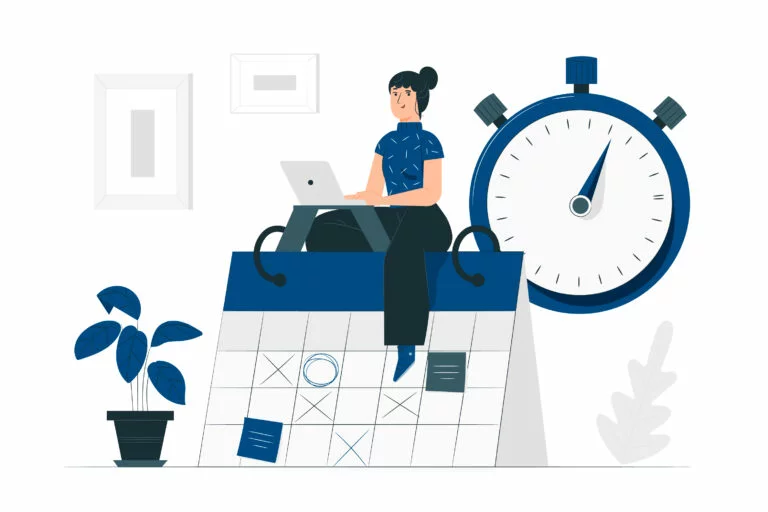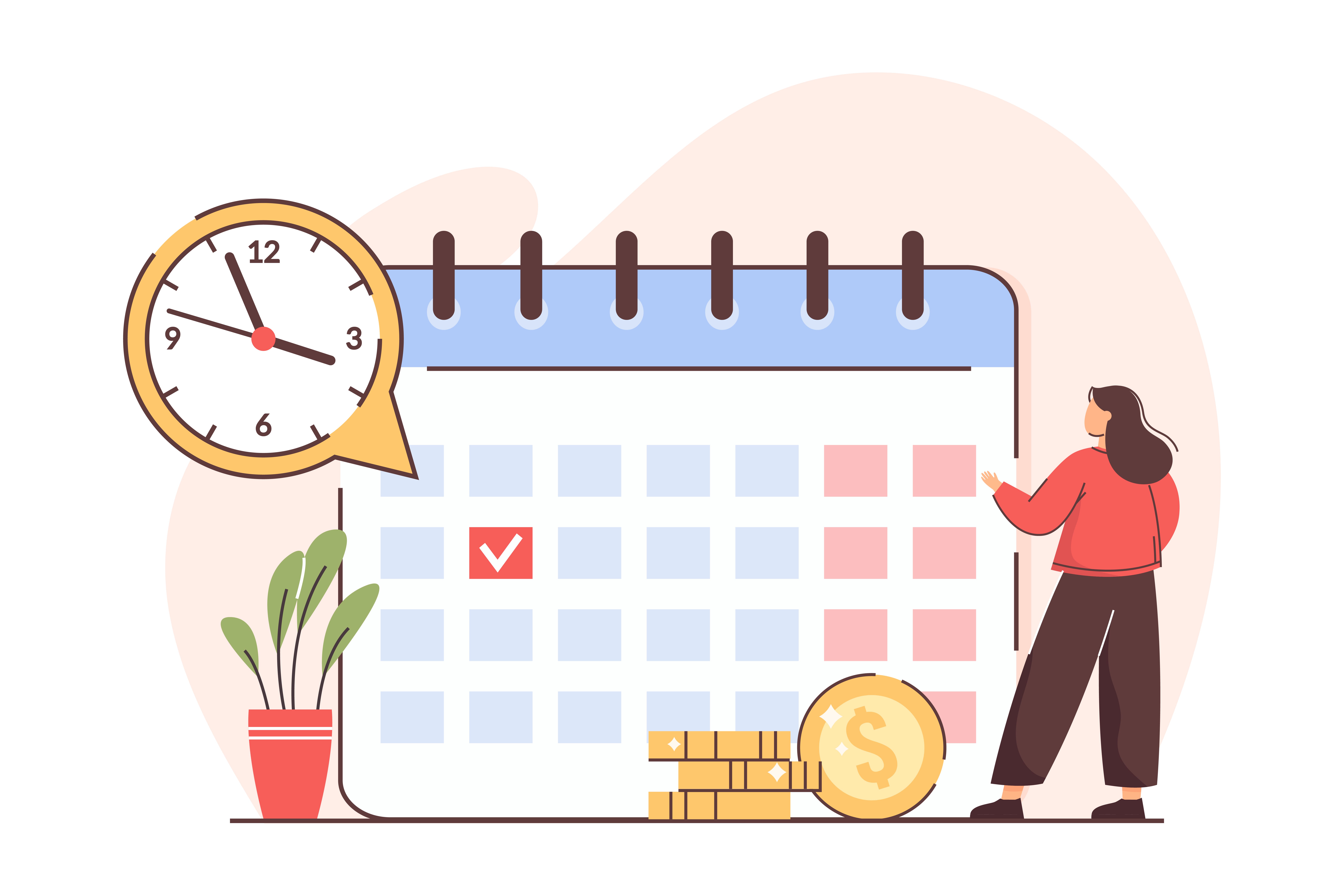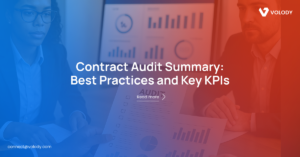Knowing when a contract ends is important in managing contracts. The end date is when the contract stops being valid, and it’s when all the things agreed upon in the contract finish. Businesses need to figure out the end date correctly so they can manage their contracts well, avoid legal problems, and decide if they want to renew or end the contract.
Understanding why contract end dates matter is crucial for businesses. If there’s no clear end date, both parties don’t know when their responsibilities in the contract start and finish. This can cause misunderstandings, arguments, and money loss. Also, the end date affects different things like when payments are due, how services are provided, and how long the business relationship lasts.
Understanding the Importance of Contract End Dates
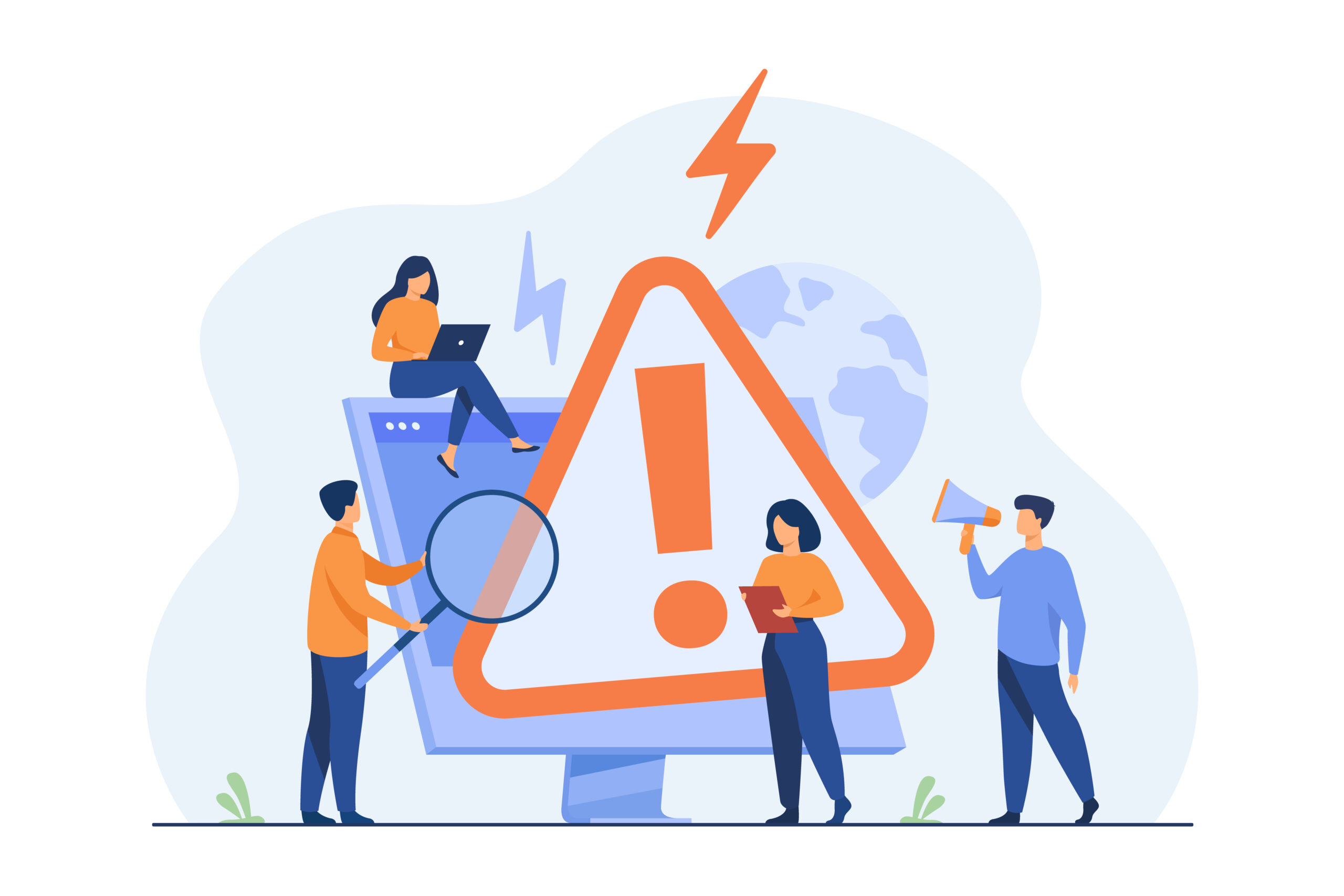
Knowing when a contract ends is important in managing contracts. The end date shows when the contract starts and finishes, so everyone knows what they need to do. This helps businesses do their part and decide if they want to keep working together after the contract ends. Having a clear end date helps avoid arguments, plan for the future, and manage contracts well.
Defining Contract End Date and Its Significance
The contract end date is when the terms of the contract are no longer legally binding. It marks the completion of the work agreed upon and the end of contractual obligations. Having a clear end date is important because it ensures everyone knows when the contract ends and what needs to be done until then.
Without a set end date, it’s hard for parties to know when their responsibilities start and finish. This can lead to misunderstandings, missed deadlines, and money lost. So, the contract end date is crucial for managing contracts. It helps businesses plan, keep track of progress, and decide whether to continue or stop the contract.
Different Types of Contract End Dates
Contract end dates can vary depending on the type of contract and the specific circumstances involved. There are three main types of contract end dates: specific date, relative date, and absolute date.
- Specific Date: Some contracts have a specific end date mentioned explicitly in the contract. For example, a fixed-term employment contract may have an end date specified, such as “December 31, 2024.” This type of end date provides clarity and certainty for all parties involved.
- Relative Date: In some contracts, the end date is determined relative to a specific event or milestone. For instance, a contract may state that it will end “30 days after the completion of the project.” This type of end date allows for flexibility and ensures that the contract remains in effect until the specified conditions are met.
- Absolute Date: An absolute end date is a fixed duration from the effective date of the contract. For example, a contract may state that it will expire “one year from the effective date.” This type of end date provides a specific timeframe for the contract’s validity, regardless of external factors.
The type of contract end date chosen depends on the nature of the agreement and the desired level of flexibility or specificity required by the parties involved.
Related Article: Contract Disputes: A Comprehensive Guide
How to Determine the End Date of a Contract
Figuring out the contract expiration date needs careful management and looking at different things. The contract should clearly say when it ends, either with a specific date or a date calculated from when it starts. It’s important to check the contract terms and any parts about renewing or ending the contract that might change the end date. By knowing what the contract is about, what needs to be done, and when it can be ended or renewed, we can figure out the end date accurately.
Calculating End Dates for Fixed-Term Contracts
Fixed-term contracts have a set duration, with the end date clearly stated in the contract. To find the end date, you need to know when the contract starts and how long it lasts. The duration could be in months, years, or any other agreed-upon period frame. For instance, if a contract begins on January 1, 2023, and lasts for two years, it would end on December 31, 2024.
However, certain situations might affect the end date of a fixed-term contract. These could include clauses for ending the contract early, allowing either party to terminate the agreement before the agreed-upon end date. It’s important to check the contract terms and any sections about termination or extension to accurately determine the end date.
Identifying End Dates in Open-Ended Contracts
Open-ended contracts, also known as indefinite contracts, don’t have a specific end date. Instead, they continue until one of the parties decides to end the contract. These contracts are often used for employment or ongoing services.
Finding the end date in an open-ended contract can be harder than in fixed-term contracts. In these cases, both parties need to talk and agree on when the contract will end or be renewed. The contract might have rules for ending it, like giving notice or certain conditions that mean the contract ends. It’s important to manage open-ended contracts well and regularly check their contract’s terms to make sure both parties know what’s happening and if there’s any chance the contract might end.
Related Article: What Are Contractual Obligations? Your Master Guide
Factors Influencing Contract Expiration

Many things can affect when a contract ends, like renewal and termination clauses, and how long the contract lasts. Renewal clauses let both parties extend the contract for more time, usually if they both agree. Termination clauses say when either party can end the contract before it’s supposed to end. Whether the contract is fixed or open-ended also matters for when it ends. It’s important to think about these things to manage contracts well and make sure everyone does what they agreed to.
Renewal Clauses and Their Impact
Renewal clauses are really important in contracts because they decide if the agreement keeps going or ends. They lay out how the contract can be extended after it finishes, making it clear for both sides. They explain the steps and rules for renewing the contract, which helps everyone know what to expect in business. Knowing and talking about renewal clauses is key for managing contracts well because they affect how long agreements last and what happens next.
Termination Clauses: What You Need to Know
Termination clauses in contracts lay out when parties can end the agreement before it’s supposed to finish. Knowing these clauses well is important because they explain how to end the contract early and what happens if you do. It’s vital to read them carefully because they say what each party can and can’t do. Understanding termination clauses helps you handle contract endings well, reducing the chances of arguments or legal problems.
Related Article: Contract Disputes: A Comprehensive Guide
Legal Implications of Contract Expiry

Once a contract ends, parties still have to follow certain obligations. Knowing what these are is important. If contracts aren’t renewed or ended on time, there can be legal problems. Termination clauses decide how contracts are ended. Handling contract deadlines well is key to avoiding issues. Keeping track of important dates and following them makes sure everything is legal and reduces risks when contracts end. Understanding the legal side of contracts reaching their end date helps manage what happens effectively.
Rights and Obligations Post-Contract Expiry
Once a contract ends, both sides still have to do things they agreed to during the contract. They usually still have to follow any rules about keeping things confidential or not competing with each other. And they might still owe money for things done before the contract ended. Both sides need to know what they should do after the contract ends to stop arguments and make sure they leave the agreement smoothly. Doing what they agreed to is key to keeping business relationships strong and sticking to legal promises.
Risks of Not Renewing a Contract in Time
Not renewing a contract on time can lead to more than just its ending. There could be legal problems, like breaking the contract or losing good terms. Things might not work smoothly if new plans aren’t made quickly. It could also cost money, like missing chances to save money or make more. And it might harm how people see the company if relationships with others get bad. Managing contracts well is really important to avoid these problems and keep the business going.
Related Article: NDAs (Non-Disclosure Agreements): A Guide To Secrecy
Strategies to Manage Contract End Dates Efficiently

Using contract management software can make it easier to keep track of deadlines and things to do. When all the contract info is in one place, it’s easy to find important dates. A good idea is to set up automatic reminders for important dates and how long things last. Making sure you can see and understand contract terms and when they end is important for managing contracts well. This way, you can avoid missing deadlines and decide quickly if you want to keep working together or not. Using contract management software like Volody can make managing contract end dates even better.
Implementing Contract Management Software
To manage contracts well, it’s important to use CLM software that makes things easier, like tracking and following rules. This software helps with things like remembering important dates, keeping track of what needs to be done, and understanding contract information. Using this tool helps organizations work better, lowers the chances of missing deadlines, and lets them see their contracts more clearly. It sends automatic reminders, keeps all documents in one place, and helps understand contract details. This way, organizations can make smart decisions and manage contract end dates well.
Best Practices for Tracking Contract Durations
To manage contracts well, it’s important to use the best methods for keeping track of how long they last. Using contract management software makes it easy to watch important dates and deadlines. Keeping all contract info in one place helps see everything clearly and makes sure nothing important is forgotten. Checking contract timelines often and using data to make better choices is helpful too. Following these methods helps organizations keep an eye on how long contracts go for and avoid problems if deadlines are missed.
Related Article: Best Contract Management Software: Top 10 CLM In 2024
Calculating Contract End Dates: Practical Tips

To figure out contract end dates, there are some handy tips to make it easier. Using contract management software helps by doing calculations and reminding you of important dates, so you don’t forget anything. Think about whether manual or automatic methods are better, depending on how complicated the contract is. Using technology makes sure you don’t miss any important deadlines. Also, looking at data helps you understand how long contracts last and when they need to be renewed. Following these good ways of doing things and using CLM tools like Volody makes managing contract end dates easier and less likely to have mistakes. Make sure to calculate accurately to avoid problems or missing chances.
Manual vs. Automated Calculation Methods
When it comes to figuring out contract end dates, manual methods involve people doing the work, which can lead to mistakes because it’s done by hand. On the other hand, automated methods use software to do the work, making it faster and less likely to have errors. Automation makes sure we keep track of how long contracts go for and don’t miss any important dates. Using technology helps make contract management better and reduces problems that come with doing things by hand. Finding the right mix of human checking and computer help is important for managing contracts well.
Using Contract Management Tools to Avoid Missing Key Dates
Using contract management software such as Volody can make tracking important dates like contract end dates much easier. With this technology, organizations can set up automatic reminders for upcoming deadlines, making sure they don’t miss anything important. This proactive approach helps prevent any mistakes or overlooking crucial dates that could cause problems with contracts. Taking advantage of the features of contract management solutions improves visibility into important dates, making it easier to keep an eye on contracts from start to finish. Technology becomes a valuable tool in reducing risks linked to missing important dates, offering a dependable way to stay on track with contract obligations.
Related Article: Contract Management Software Free Trial: Try AI CLM Software
Preparing for Contract Renewal or Termination
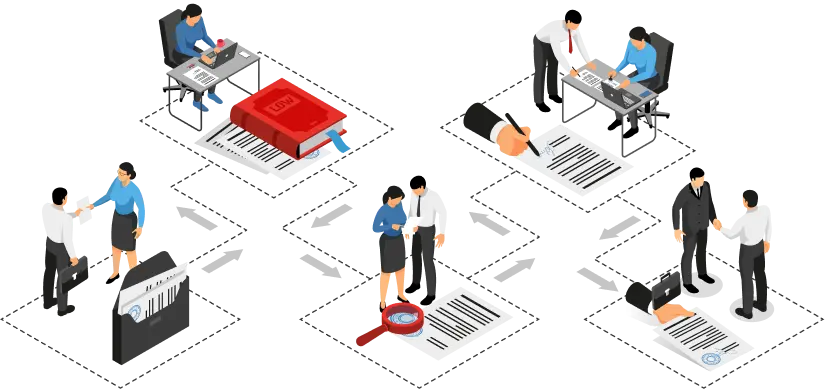
Before a contract ends, there are important steps to take. First, review renewal clauses and check termination conditions carefully. Then, make sure to inform everyone involved promptly. Start negotiating early to make renewing the contract easier. Compare how well things went against what was agreed in the contract to help with negotiations. Keep everything organized by using contract management software to track dates and deadlines. Finally, communicate clearly with the other party to make sure everyone understands and agrees on what happens next.
Steps to Take Before a Contract Expires
Before the contract ends, it’s important to do a few things. First, check if there are options to renew the contract and what notice is needed. Then, talk to the other party about whether to renew or end the contract. Look at how well things went and if everyone did what they were supposed to. Use contract lifecycle management software to remind you of important dates. Think about if the contract needs to change because of new things happening. Get all the paperwork ready in case the contract is extended or ends. Look over what everyone has to do in the contract to avoid problems at the last minute. Plan to make sure things go smoothly after the contract ends.
Negotiating Contract Renewals Effectively
To negotiate contract renewals well, you need to know what the contract says, what you have to do, and when things need to be done. It’s important to look at important dates and think about what the other party wants. Using contract management software helps keep track of when contracts need to be renewed. Talking to each other is important in negotiations to make sure everyone agrees on what should happen. Think about everything that’s going on and what could go wrong before starting negotiations. Planning will make negotiating easier and help get good terms for everyone.
Related Article: Contract Negotiation: Proven Strategies For Collaboration
Frequently Asked Questions
How Can I Quickly Determine a Contract’s End Date?
To find out when a contract ends quickly, you can look at the contract terms or ask legal experts. Using tools like contract management software helps keep track of dates and reminds you when important things are coming up.
What Happens if a Contract Expires and Is Not Renewed?
If a contract ends without being renewed, it could have legal consequences, like losing services or rights. Knowing if the contract renews automatically or how much notice is needed is important to avoid accidentally letting the contract end. It’s really important to review contracts and renew them on time to avoid problems.
What factors should be considered when determining the end date of a contract?
The type of contract, renewal clauses, and termination terms are important in deciding when a contract ends. Knowing about these things helps make decisions on time when the contract is about to end.
Are there any legal requirements regarding the duration of a contract?
Laws about how long contracts can last differ depending on where you are and what type of contract it is. For instance, some places have rules about the longest a contract can be, called statutes of limitations. Knowing these laws is important to follow the rules and avoid arguments.
Is it possible to extend or terminate a contract before the specified end date?
Understanding termination clauses in contracts helps you figure out if you can end or extend the contract early. It’s important to look at renewal clauses and legal consequences before the contract ends so you can make smart choices. If necessary, think about changing the terms of the contract.
Related Article: Breach Of Contract: Master How To Resolve Legal Disputes
Conclusion
In conclusion, grasping the end date of a contract is pivotal for effective contract management. It entails calculating and tracking various types of end dates to ensure compliance and mitigate potential risks post-expiry. Factors such as renewal and termination clauses play a significant role in determining the duration of contracts. Implementing contract management software and adhering to best practices can streamline the process and minimize the likelihood of missing deadlines. By preparing for contract renewal or early termination in advance and negotiating effectively, organizations can efficiently manage their contractual obligations and maintain robust business relationships. Regularly reviewing and updating the contract’s terms is essential for legal compliance and operational efficiency in the long run.
